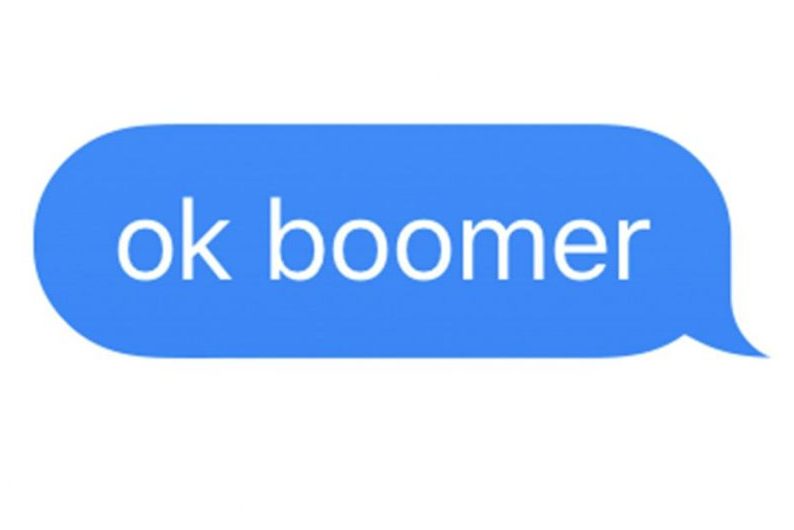Knowledge, which is known information, has become the number one commodity in the world. It doesn’t matter how large and important or how small and insignificant a piece of information may be: there is still value in it. Knowledge of a person’s shoe style preference, for example, is valuable to shoe manufacturers or sales organizations which may place targeted ads on social media. Knowledge is king.
Given the massive effort placed in collecting, analyzing, cross referencing and disseminating this near infinite body of valuable knowledge, it is odd that no one has yet attempted to exploit the far larger collection of knowledge’s mirror image – the world of ignorance.
Before you stop reading, consider: if you were a used car salesman, would you prefer to sell a used car, which generally has some small or large defects – brake pads worn and due for replacement, a small engine oil leak, etc. – to a person highly knowledgeable about automobiles and how they work, or to a person who is completely ignorant of every aspect of automobiles, with the sole exception of how to drive them?
Cogitate this for a moment!
I maintain that eventually, the data set of things that an individual does not know will be orders of magnitude larger and more valuable than the set of all other things that we know about them. Mathematically this is a certainty.
I am talking about an information set composed not of what a person’s preferences, location, friendships etc. may be, but the totality of what a person knows, and by extrapolation – what they do not know.
We are talking about metadata – knowledge about knowledge. Metadata is powerful and the means of manipulating metadata can be different than the means of manipulating the underlying data set.
Assuming that we can acquire a reasonably populated set of people’s ignorance, what can be done with it? Everything, I propose.
The first group to co-opt this data, I believe, will be the least upstanding members of society – those who consistently try to cheat or take advantage of people’s ignorance – confidence men, cults, telephone marketers, salesmen of miracle cures, questionable fringe products, etc. A data set of a person’s ignorance would be the goose that lays golden eggs to this group. From beginning thus, knowledge of people’s ignorance will be adopted throughout the business world.
Let me give you an example: assume that you were tasked with selling vacation packages for the month of June for a beach resort in New Zealand. To have a list of people who did not know that June is midwinter in New Zealand would be priceless.
If you have grasped this concept, you have probably considered the question: ‘How can a data set of people’s ignorance be collected?’
For five years I have considered this question and have come up with a wide range of means, and have tested them all.
The approach to discovering an existing piece of ignorance is based on ‘indirectness’.
Indirectness is the key to collecting ignorance data without imparting knowledge of the area you are testing. Direct questions can imply the answer. We must ask questions about the implications of a specific piece of knowledge rather than ask about the item itself.
For example, if I wanted to find out which people were ignorant of the fact that seasons are reversed south of the Equator, I could not ask that direct question because the question itself, to the subject, implies the possibility that the seasons could be reversed. Instead, I might create an instant quiz, with five seconds to answer, so people could not look up the answer, and ask questions like:
‘Guess the exact temperature in Auckland right now’.
If it is June, for example, and people choose a warm weather temperature, then they are ignorant of season reversal. If we bury this question within 10 other questions – all of which are testing different areas if ignorance, the chances of the subject looking up the answer is slim and nothing in the question implies the existence of season reversal.
We can go a step further and actually ‘impose’ ignorance on a population.
My largest experiment was ‘whale fucking’ which tested a person’s gullibility – a powerful form of ‘imposed ignorance’. I claimed to be part of a ‘whale fucking’ club in Hawaii, the members of which had sex with humpback whales. Anyone who considered for a moment would see the impossibility. I even spelled out this impossibility but couched it in terms of ‘is whale fucking consensual?’.
Enough of the "Whale Fucking is non-consensual" bullshit. A Humpback Whale weighs 70,000 pounds, is fifty feet long, can dive more than a quarter mile and can crush ships with a single swipe of its tail. If a human manages to fuck one, you damn well better believe it's consensual
— John McAfee (@officialmcafee) December 31, 2018
We then selected 100 random commenters on my various whale fucking tweets and asked them two questions:
- Do people really fuck whales?
- Has John McAfee fucked a whale?
62 percent answered ‘yes’ to the first question. 41 percent answered ‘yes’ to the second question.
Anyone who followed the various whale fucking threads can easily see the overwhelming number if people who believed it. I even received complaints from various animal rights organizations.
Collecting the identities of the respondents would have been trivial.
What this shows is that disinformation, which is ignorance of the truth, is simple to impose, even if logic denies it. What is even simpler is discovering a person’s ignorance set without imparting knowledge.
John McAfee is an anti-virus software pioneer running to be the Libertarian nominee for president of the United States.

























